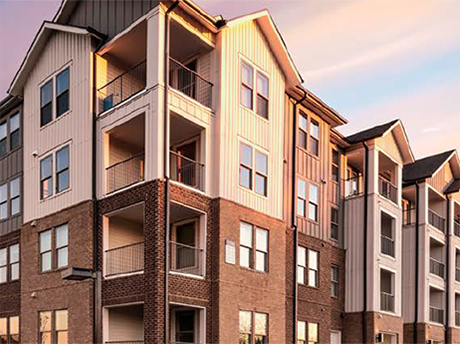Last year, a city known more for music than multifamily development led the nation in new construction growth rates, with luxury high rises popping up from downtown to the Gulch to along the Cumberland River. Nashville, attracting an abundance of debt and equity funding from sources old and new, is now considered an institutional-grade market.
The driving force behind this growth: technology. Today, singers, songwriters and studio artists share the city with a growing number of software developers, systems architects and startup founders — and all of these innovators need a place to live, work, shop and play.
Nashville’s tech evolution started from a solid foundation in healthcare, automotive and education, including HCA Healthcare and its associated startups, spinoffs and subsidiaries and an automotive hub that includes North American headquarters for Nissan and Korean tire manufacturer Hankook, as well as EV and battery cell manufacturing plants for GM. Twenty nine institutions of higher education, including Vanderbilt University, further helped develop a strong pipeline of tech talent.
This ecosystem and a business-friendly climate have attracted some of the nation’s top tech employers: Amazon, who chose the metropolitan area for its much-coveted Center of Excellence; Oracle, relocating from Austin; and Capgemini, whose Nashville delivery center will provide more than 1,500 new jobs in areas such as cloud, artificial intelligence, custom software development, digital customer experience and data.
Marquee relocations have been accompanied by blossoming innovation in sectors like entertainment and hospitality. Meanwhile, remote tech workers, untethered from offices in New York and San Francisco during the pandemic, migrated to Nashville for its lower cost of living and vibrant entertainment scene.
How have these trends shaped multifamily development in Nashville? On one hand, there’s been a shift to higher density and smaller floor plans, like studios and one bedrooms of 450–500 square feet. At the same time, remote work has generated demand for two-bedroom units and units with dens, plus technology that can accommodate the data needs of a virtual office.
New development extends beyond the city center. Antioch, roughly 12 miles southeast of downtown, will soon be home to a new innovation district at the site of the former 600,000-square foot Global Mall at the Crossings, as well as Century Farms, a 300-acre mixed-use development featuring the 1,500-employee corporate headquarters of Community Health Systems, Nashville Soccer Club’s training facility, a Tanger Outlets mall, Class A multifamily developments and a variety of entertainment options.
How will this rising tech titan fare in the months ahead? Positive indicators include a steady influx of jobs, single-family home prices continuing to outprice rents and still-encouraging rent growth, with a forecast of 10 percent with some micro-pockets of 15–16 percent for 2022-2023. Even amid the economic headwinds of 2022, prospects for Nashville remain bright.
— By Brett Kingman, managing director; Doug Hart, senior director, and Russ Oldham, managing director, Walker & Dunlop. Walker & Dunlop is a content partner of REBusinessOnline. For more articles from and news about Walker & Dunlop, click here.
Read Walker & Dunlop’s Spring 2022 Multifamily Outlook here for more information on all things multifamily.





